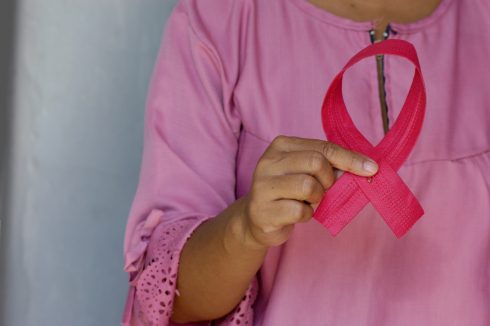SCIENTISTS have found some 921 cancer promoting chemicals in products we use daily.

The study, carried out by the Silent Spring Institute, revealed some 90% of these substances are present in ‘products or environments we are commonly exposed to’ including food, drink, pesticides, medicines and workplaces.
Researchers also found almost a third of these chemicals create tumours in animals, the ‘best predictor’ of whether they cause cancer in humans.
These synthetic chemicals are being developed ‘all the time’ and could explain the recent rise in breast cancer in young women.
According to the study: “Recent data show rates increasing in young women, a trend that can’t be explained by genetics.”
In Spain, an estimated 4,132 people under 44 were diagnosed with breast cancer in 2023, a 9% increase compared to 2021.
“It’s a fact that breast cancer is increasing in younger women,” oncologist Dr Javier Salvador at Sevilla’s Hospital Virgen del Rocio told the Olive Press.
He added: “The general occurrence of cancer is rising and it is fundamentally associated with unhealthy habits. Breast cancer is no exception”.

In the past 30 years, cancer incidence in the under 50s has risen by an incredible 79% according to a Global Burden of Disease (GBD) study, and it’s no coincidence that during this time, the number of synthetic chemicals have risen dramatically.
We may not even be aware of our ‘unhealthy habits’, with some 350,000 chemicals currently on the international market.
A ‘number of studies’ established links between breast cancer and environmental chemicals found in plastics, pesticides, air pollution and even hair dye.
Globally, the production of chemicals has increased fiftyfold since 1950.
Despite the fact we have already surpassed the safe levels of chemical pollution for human life, this number is set to triple by 2050, according to a report by the European Environment Agency.
It is more important than ever, says Dr Kay, to identify chemicals that contribute to breast cancer.
Published in the Environmental Health Perspectives Journal, Kay’s study ‘provides a roadmap for regulators and manufacturers to quickly flag chemicals that could contribute to breast cancer in order to prevent their use in consumer products and find safer alternatives.’
She added: “We need new tools to identify environmental exposures that could be contributing to this trend so we can develop prevention strategies and reduce the burden of the disease.”
As scientists would have to wait ‘years’ to see the links between chemicals and cancer in real time, studies like this are the only ‘ethical’ way to tackle the issue.
It comes after Europe’s largest ever screening programme discovered residents are subject to ‘alarming high’ levels of toxic chemicals, which could lead to ‘serious illness’.
According to Tatiana Santos, Head of Chemicals Policy at the European Environmental Bureau: “EU regulatory weaknesses allow dangerously uncontrolled use of chemicals.”
In a statement, she urged Brussels to increase all harmful substances in consumer products.
Currently, just 50% are prohibited ‘allow[ing] widespread public exposure to highly dangerous chemicals to continue.
“This would fail to prevent severe health damage, including contributions to cancer, infertility, obesity, asthma and neurological diseases.”
READ MORE:


